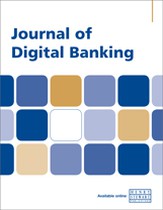Achieving velocity in digital banking: Focusing on complexity reduction, cloud-first and AI-first solution design
Abstract
This paper considers the factors that contribute to the velocity of software development related to digital banking platforms. The paper identifies research related to software complexity and applies this research to propose a scoring approach for managing code complexity as a means of increasing development velocity. Secondly, the paper outlines an approach for designing solutions which are anticipating cloud deployment and building learning models versus rules-based models to improve the agility and adaptability of digital banking platforms.
The full article is available to subscribers to the journal.
Author's Biography
Kris Hansen describes himself as ‘a recovering banking chief architect’, and in his recovery has been developing financial services software and solutions that challenge existing conventions. He began his career as a system administrator and software developer, started one of the first Internet provider companies in Canada and later built a successful software services company in the Hawaiian Islands. He is the former chief architect at ATB Financial and former head of solution architecture at the Royal Bank of Canada. He has co-developed a patent related to contactless digital payments and biometric identity and has been involved in cryptocurrency and Blockchain software development. He is the chief technology officer (CTO) at Portag3 Ventures, a FinTech-focused venture capital fund that invests in enabling entrepreneurs and innovation, and CTO at KOHO Financial, a Canadian ‘Neo Bank’ and a key Portag3 investment. KOHO is focused on providing a digital account to help Canadians save, spend and manage shared finances. He leads the KOHO engineering team, which is a diverse group of former game developers, astrophysicists, Software as a Service (SAAS) engineers and cryptocurrency developers who are working on ways of considering challenges in financial services from a digital-first perspective. He is also a director with the Digital Finance Institute, a Canadian non-profit think tank focused on building a community around financial services innovation and artificial intelligence (AI).
